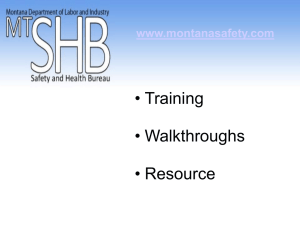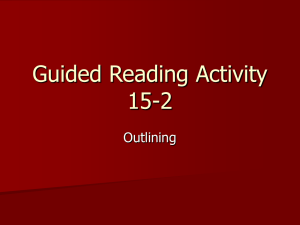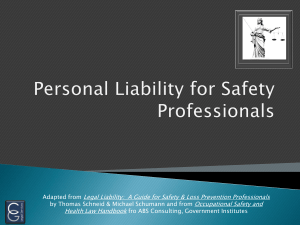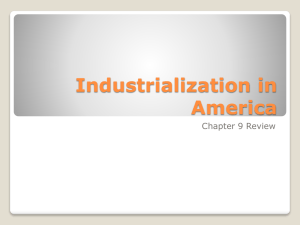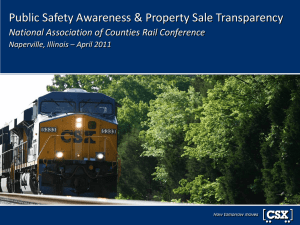Jeff Jackson - PA Rail Seminar > Home
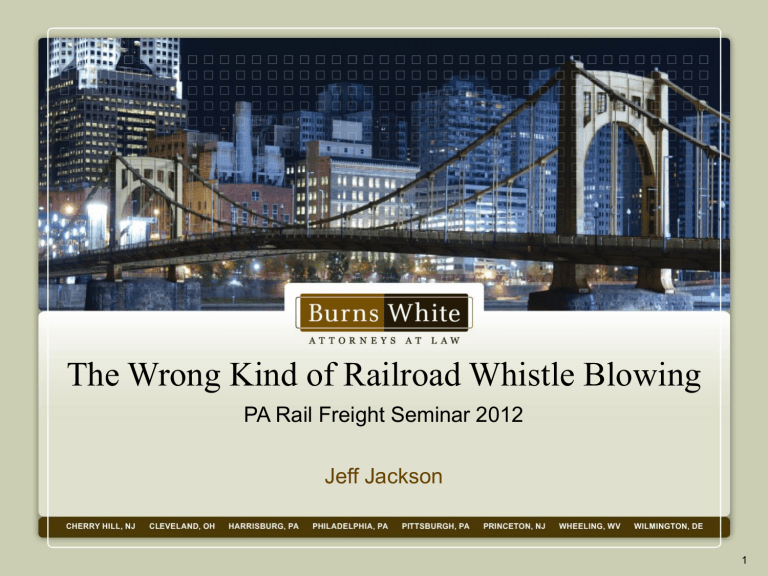
The Wrong Kind of Railroad Whistle Blowing
PA Rail Freight Seminar 2012
Jeff Jackson
1
2
Trends
• Frequency and severity of personal injuries has dropped dramatically
• Significant reduction of FELA claims over the past decade
– Acute injuries
– Occupational injuries/illnesses
• However, the number of Whistleblower cases has gone up dramatically in the past several years
3
Trends
• OSHA has beefed up their Whistleblower Office under the current administration
• Jurisdiction transferred from RLA (Adjustment Board) to OSHA
• Expansion of scope of statute
• Greater public awareness of Whistleblower protections
4
Remedies
• Reinstatement with same seniority and benefits
• Back pay with interest
• Special damages
– Mental distress and suffering
– Any economic losses stemming from railroad’s actions
• Attorney’s fees
• Litigation costs
– Expert witness fees
• Punitive damages (capped at $250,000)
5
Other Factors
• OSHA investigation
• Two bites of the apple
• Jury trial
6
FRSA Jury Award: Barati v. Metro-North
• First FRSA jury award
• Plaintiff alleged he was terminated for reporting an injury on the job
• Railroad subsequently reduced the discharge to a suspension
• $50,000 in compensatory damages
• $1,000.000 in punitive damages
7
Elements of a FRSA 20109 Claim
1. Employee engaged in protected activity;
2. Railroad knew or suspected the employee was involved in protected activity;
3. Railroad subjected employee to an adverse employment action;
4.
Employee’s protected activity was a “contributing factor” to the adverse action.
8
“Protected Activity” under FRSA
1. Report a hazardous safety condition
2. Notify Railroad of a work-related injury or occupational illness (yourself or co-worker)
3. Furnish information to any regulatory/law enforcement agency relating to railroad incident resulting in injury, death, or property damage.
4. Refuse to violate and federal law/rule/regulation relating to railroad safety or security
5. Refuse to work under hazardous safety/security conditions
9
“Protected Activity” under FRSA
6. Refuse to authorize use of unsafe railroad equipment, track or structures
7. Accurately report hours on duty pursuant to Hours of
Service Act
8. Follow rules or treatment plan of their treating physician
9.
File a FRSA complaint with OSHA’s Whistleblower
Office
10. Testify regarding a FRSA complaint
10
Medical Attention Amendment
• 20109©(1) “…carrier…may not deny, delay, or interfere with medical or first aid treatment of an employee who is injured during the course of employment . If transportation to a hospital is requested…the railroad shall promptly arrange to have the injured employee transported to the nearest hospital where the employee can receive safe and appropriate medical care.”
11
Medical Attention Amendment
• 20109(c)(2) “…carrier…may not discipline, or threaten discipline to, an employee for requesting medical or first aid treatment, or for following orders or a treatment plan of a treating physician…”
• Exceptions
– RTW situations when done pursuant to FRA FFD standards (or a carrier’s own FFD standards)
12
“Adverse Employment Action”
• Discharge
• Demote
• Suspend
• Threaten
• Harass
• Discriminate
• Reduce pay
• Reduce hours
• Fail to rehire
13
“Contributing Factor”
• Similar to “in whole or in part”
• More likely than not
• Burden then shifts to Railroad to establish protected activity was not a factor by “ clear and convincing evidence”.
14
Possible Whistleblower Scenarios
• Railroad delays treatment/hospital trip to question employee about incident leading to injury
• Railroad disciplines employee for late reporting of an injury
• Railroad disciplines employee for violation of a safety rule
15
Walter Peck: OSHA Administrator
16
OSHA Memorandum March 12, 2012
• Focused on Injury Reporting
• Disciplinary action premised upon the mere reporting of an injury , regardless of circumstances, is prohibited
• Discipline after reporting injury based upon violation of rule deserve “ careful scrutiny”
– Must be reasonable
– May not unduly burden employee’s right and ability to report
17
OSHA Memorandum March 12, 2012
• Discipline based upon safety rule violation
– OSHA concerned with use as a pretext for discrimination
• Factors OSHA considers
– Rule compliance monitoring in absence of injury
– Consistency in application in absence of injury
– Nature of rule
• General rules (“maintain situational awareness”) will be strictly scrutinized
18
OSHA Memorandum March 12, 2012
• Employee Safety Incentives
– Team rewards (bonuses, parties)
– “Well intentioned” but may discourage employees from injury reporting
– Disqualification of group from incentive based upon injury report may constitute adverse employment action
– OSHA will look to nature of incentive (magnitude)
19
Guidance from Recent Decisions
• Length of delay in reporting
• Consistency in rule enforcement
• History of employee’s discipline
• Extent of violation versus extent of response
(proportionality)
20
Guidance from Recent Decisions
• Railroad response to whistleblower complaint
• Railroad response to OSHA investigation
21
What Not to Do
22
Some General Guidance
Do
Educate Managers about FRSA
Don’t
Discipline Employees for Mere Injury
Report
Consistently Enforce Rules Deviate from Medical Treatment
Protocols
Follow Medical Treatment Protocols Invoke the “nuclear option”
Encourage Employee Injury Reporting Mislead OSHA Investigators
Develop Good Recordkeeping
Cooperate with OSHA investigators
23
